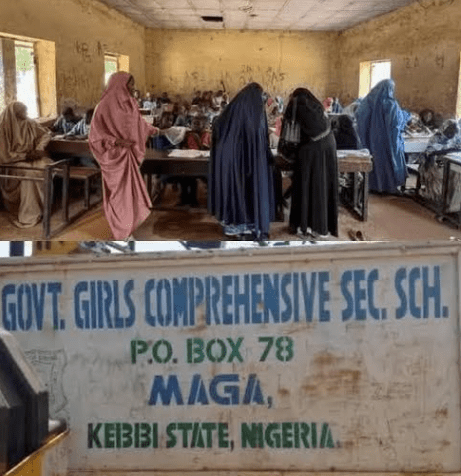Forgotten Dairies
Kidnapped, Feared, Forgotten: Nigeria Risks Losing a Generation to Insecurity -By Bello Humulkhair
The abductions in Kebbi, the kidnapping of a UDUS graduate, and the growing wave of insecurity across other states illustrate a grim reality: if students cannot be safe in schools or on the roads, parents and sponsors are rightfully hesitant to allow them to pursue education far from home. The fear is real, the risk is high, and the psychological toll on students and families is immense.

Nigeria stands at a dangerous crossroads. Students’ minds are battered, their souls shaken, and hope quietly slipping away. Every day, scrolling through social media brings fresh horror — abductions, killings, disappearances. Tragedy has become so common that fear now lives permanently in the hearts of Nigerian students.
On 17 November 2025, 25 schoolgirls were abducted from Government Girls’ College, Maga in Kebbi State. Gunmen scaled the school fence, killed the vice-principal, and kidnapped the students, sending shockwaves across the nation. Just months earlier, a newly graduated radiography student from Usmanu Danfodiyo University, Sokoto, Basheerah Ojedeyi, was kidnapped while traveling on the Felegu–Ibbi road in Niger State. Her vehicle reportedly broke down, making her vulnerable to bandits. She was held for two weeks before being released.
These incidents are not isolated events — they highlight the growing insecurity facing students across Nigeria, both inside schools and on the roads that connect them to their families.
For many young Nigerians studying far from home, the journey to school has become an emotional and psychological ordeal. Long-distance travel, once a normal part of education, has turned into a gamble with life. Parents call repeatedly, anxious and restless, as though their children are traveling abroad. A missed call is enough to send fear down their spine. Students find themselves on highways where no security checkpoint appears for two to three hours. Night travel feels like walking into the unknown — isolated roads, strange movements, sudden vehicle breakdowns, and the creeping fear that anything can happen.
This is not an exaggeration. This is the Nigerian student’s reality.
In states such as Kebbi, Sokoto, Niger, Zamfara,Katsina and kwara, insecurity has become a daily routine, disrupting education and instilling fear in students and their families. This persistent violence has forced many parents and sponsors to withdraw their children from universities in the North or from institutions far from home. For families who cannot afford the more expensive but safer flights, road travel remains the only option — yet it is increasingly perilous. As a result, some students are forced to pause or abandon their studies, while others never attempt admission to distant universities at all.
This is especially painful because students often choose these institutions due to limited admission opportunities in their home states. For them, studying far away is not a luxury — it is the only chance at higher education, personal growth, and exposure. But insecurity is gradually closing that door.
The abductions in Kebbi, the kidnapping of a UDUS graduate, and the growing wave of insecurity across other states illustrate a grim reality: if students cannot be safe in schools or on the roads, parents and sponsors are rightfully hesitant to allow them to pursue education far from home. The fear is real, the risk is high, and the psychological toll on students and families is immense.
If the pathways to education are not made safe, Nigeria risks losing an entire generation to fear and violence. This is no longer just a student problem — it is a national emergency. Every student should be able to travel to school and learn without fear of being attacked.
The government should please act urgently to make roads and schools safe for students. Without decisive measures to address insecurity, the future of a generation of learners is at risk.









